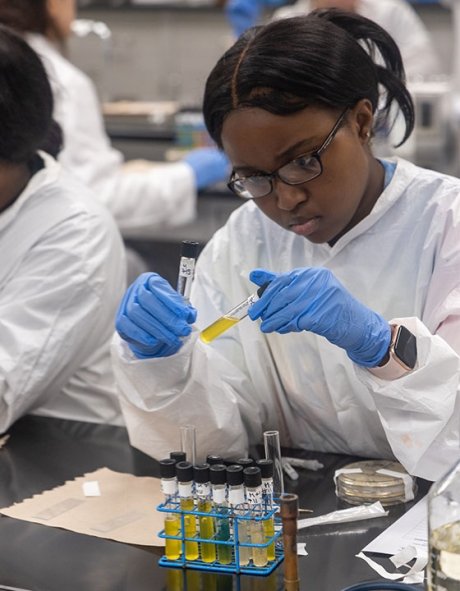RIC Involved in $8M National Science Foundation Project
- News & Events
- News
- RIC Involved in $8M National Science Foundation Project

The project’s goal is to transform STEM research, education and workforce development within Rhode Island.
The U.S. National Science Foundation (NSF) has awarded $8 million to a URI-led team of researchers from Rhode Island College, Brown University, Rhode Island School of Design and Roger Williams University to fund a project titled E-CORE RII: Rhode Island Inclusive Network for Excellence in Science and Technology.
Associate Professor of Biology Anabela Resende da Maia is the RIC institution lead and one of the co-principal investigators on the project.
Facilitated by the NSF EPSCoR Collaborations for Optimizing Research Ecosystems Research Infrastructure Improvement (E-CORE RII) program, the project’s goal is to enable the state of Rhode Island and the Narragansett Indian Tribe and its citizens to develop and maintain a sustainable, broadly inclusive and competitive research ecosystem that supports use-inspired science and technology and workforce development.
The project will sustainably develop capacity, programming, platforms and partnerships that serve and benefit institutions of higher education across Rhode Island by institutionalizing research infrastructure support programs and implementing innovative programs that lead to increased collaborations across the state’s institutions.
These platforms and systems will lead to an inclusive network for scientific opportunities with low barriers to entry; an increased number of students from minoritized and tribal backgrounds that flourish in STEM; and the creation of new initiatives that align with the strategic diversity, equity, inclusion, justice and access plans of the collaborating institutions.
A new staff position at RIC has been created at RIC as a result of this award, which will focus on creating partnerships within the community and strengthening existing programs.
E-CORE RII awards provide up to $8 million in funding over four years, with the possibility of renewal for an additional four years.
